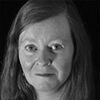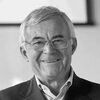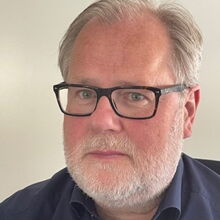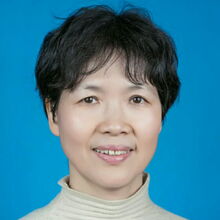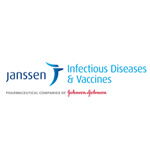ESWI Summit 2022: Pandemic Preparedness, Where Science and Policy Meet
Thank you to all attendees!
21 June 2022 | Brussels & online
The ESWI Respiratory Virus Summit, entitled Pandemic Preparedness: Where Science and Policy Meet, took place in Brussels and online on Tuesday 21 June 2022. Themes of the Summit included early warning systems, diagnostic platforms, pathogen discovery, mathematical models, clinical trial platforms, non-pharmaceutical intervention and treatment strategies, pharmaceutical intervention strategies, education, communication, and global cooperation.
Taking a One Health and Global Health approach, we have explored requirements for prediction, planning and execution aspects of pandemic preparedness.
Chaired by
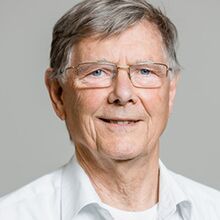
Nationality: Dutch
Position: Founding Director of the Center of Infection Medicine and Zoonosis Research and Guest-Professor at the University of Veterinary Medicine Hannover
Research fields: Virus infections of humans and animals
Professor Osterhaus is the Founding Director of the Center of Infection Medicine and Zoonosis Research at the University of Veterinary Medicine Hannover, Germany, and cofounder/CSO of Viroclinics-DDL BV (currently part of CERBA) and ViroNative BV (both spin-outs of Erasmus MC) and CR2O. He was head of the Department of Viroscience at Erasmus MC Rotterdam until 2014.
He has a long track record as a researcher and project leader of numerous major scientific projects. At Erasmus MC, he has run a diagnostic virology lab with more than 40 staff and a research virology lab with over 150 personnel. His research programme follows an integrated “viroscience” concept, bringing together world-leading scientists in molecular virology, immunology, epidemiology, pathogenesis, and intervention studies for human and animal virus infections.
Among his major accomplishments are the discovery of more than 80 viruses of humans and animals (e.g. human metapneumovirus, coronaviruses, influenza viruses), elucidation of the pathogenesis of major human and animal virus infections, and development of novel intervention strategies. This has enabled health authorities like the WHO to effectively combat disease outbreaks like SARS and avian influenza. The established spin-outs are among his other societally relevant successes, allowing effective testing and refining of diagnostic tools and other intervention strategies.
Professor Osterhaus has acted as mentor for more than 85 PhD students and holds several key patents. He is the author of more than 1360 scientific papers in peer-reviewed journals, together cited > 90,000 times with an H index > 145. He holds several senior editorships and has received numerous prestigious awards. He is a member of the Dutch and German National Academies of Sciences, member of the Belgium Academia of Medicine, and Commander of the Order of the Dutch Lion.
- Science, Public Health, and Funding in a changing world
- Intervention Strategies: hMPV - the (not so) new kid on the block
- Flu vaccines - advancements, challenges, and global impact
- Which viruses could cause the next pandemic?
- Which viruses could cause the next pandemic?
- Will there be a new pandemic? When will it be and are we better prepared for it this time around?
- Is COVID-19 worse than influenza?
- Scientific highlights of the 9th ESWI Influenza Conference
- ESWI Summit 2024: Rapporteur from the RSVVW’ 2024 meeting in Mumbai
- Webinar: Immunisation & Treatment
- ESWI Respiratory Virus Summit 2024
- The Ninth ESWI Influenza Conference: Highlights
- The Influenza B/Yamagata lineage appears to become extinct: implications for quadrivalent influenza vaccines?
- RSV looking towards the future
- ESWI pandemic preparedness summit: where science and policy meet
- Respiratory Virus Summit 2023
- Celebrating ESWI 30 years!
- “Flu, COVID and RSV: How to vaccinate?” symposium at Options XI
- ESWI Summit 2022 – Stakeholder Debate
- ESWI Summit 2022 - Conclusions
- World Influenza Conference
- ESWI Summit 2022: Pandemic Preparedness, Where Science and Policy Meet
- Pandemic Preparedness Planning in Peacetime
- World Vaccine Congress Europe 2022
- Flu and COVID-19 booster Vaccinations: where do we go?
- RSV Disease in a COVID-19 era
- COVID-19 Treatment and Medication
- Childhood Influenza Vaccination and treatment in a COVID-19 era
- Vaccination in a COVID-19 era
- Should we introduce national live vaccination programmes for children?
- Influenza in persons living with diabetes: Pathogenesis and prevention
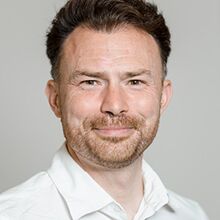
Nationality: American, British
Position: Professor of Applied Evolutionary Biology, University of Amsterdam Faculty of Medicine
Research field: Virus Evolution
ESWI member since 2019
Colin Russell is a professor at the University of Amsterdam School of Medicine. His research focuses on the evolutionary dynamics of human respiratory viruses and the immune responses that control them. He has worked extensively on the within-and-between host evolution of influenza viruses, influenza virus vaccine composition, and issues related to diagnostic and sequencing resource allocation for virus surveillance. Professor Russell regularly advises a wide variety of international organisations, including WHO, on topics ranging from surveillance to pandemic preparedness, vaccine design, and test-to-treat programs. Colin is the Chair of the ESWI since 2023 and the Chair of the EU Steering Group on Influenza Vaccination since 2024.
- Satellite Symposium: A Shot in the Arm: Leveraging Combination Vaccines for Global Health Impact
- Competition between transmission lineages mediated by human mobility shapes seasonal influenza epidemics in the US
- Wrap up - Unpacking intervention strategies for acute respiratory viruses
- Uncovering the Contrasts and Connections in PASC: Viral Load and Cytokine Signatures in Acute COVID-19 versus Post-Acute Sequelae of SARS-CoV-2 (PASC)
- When should you take antiviral drugs?
- What is hybrid immunity?
- Scientific highlights of the 9th ESWI Influenza Conference
- Determinants of epidemic size and the impacts of lulls in seasonal influenza virus circulation
- Webinar: Immunisation & Treatment
- Burden of acute respiratory virus infections
- The Ninth ESWI Influenza Conference: Highlights
- Burden of disease - The economic and societal impact of acute respiratory viruses
- ESWI pandemic preparedness summit: where science and policy meet
- Celebrating ESWI 30 years!
- SARS-CoV-2 diagnostic testing rates determine the sensitivity of genomic surveillance programs
- “Flu, COVID and RSV: How to vaccinate?” symposium at Options XI
- Using mathematical modelling to predict virus evolution and inform pandemic response
- ESWI Summit 2022: Pandemic Preparedness, Where Science and Policy Meet

Position: Journalist, New Scientist
Debora MacKenzie has been a major contributor to New Scientist, the British science and technology weekly, since 1982. For many years she has mostly written about infectious disease, arms control, resource management, fisheries, food production, issues emerging from social complexity and the scientific understanding of social phenomena such as migration, denialism, economic development and political organisation. Her educational background is in biology, with graduate work in electrophysiology and pharmacology. She has lived in continental Europe since 1980, formerly in Brussels, currently near Geneva, Switzerland.
Her recent book “Stopping the next pandemic, how COVID-19 can help us save humanity” was published in 2020 and revised in 2021 published by The Bridge Street Press:
In a gripping, accessible narrative, she lays out the shocking story of how the COVID-19 coronavirus pandemic happened and how to make sure this never happens again.
Watch our 15 minute recap:


